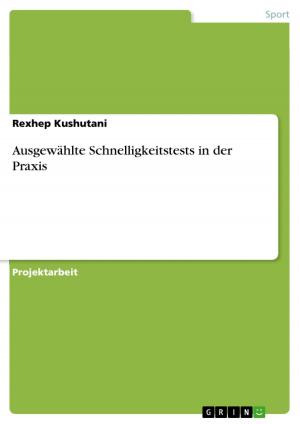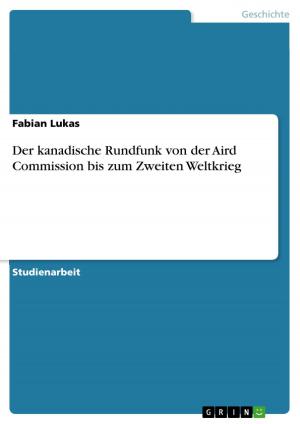Why community policing in Liberia was less effective
Nonfiction, Social & Cultural Studies, Political Science, International, International Security| Author: | Emmanuel David Togba | ISBN: | 9783668581418 |
| Publisher: | GRIN Verlag | Publication: | November 28, 2017 |
| Imprint: | GRIN Verlag | Language: | English |
| Author: | Emmanuel David Togba |
| ISBN: | 9783668581418 |
| Publisher: | GRIN Verlag |
| Publication: | November 28, 2017 |
| Imprint: | GRIN Verlag |
| Language: | English |
Master's Thesis from the year 2017 in the subject Politics - International Politics - Topic: Peace and Conflict Studies, Security, grade: 68, Coventry University, course: Terrorism, International Crimes and Global Security, language: English, abstract: Community policing is a new phenomenon widely used to provide security extension through police-community partnership or cooperation between the state security providers and the community. This philosophy has proven to be an alternative for developing countries especially where the state capacity to provide security is limited. This process involves using the community for crimes information, crimes prevention and fighting crimes. Hence, various communities have adopted the approach of combining community partnerships with people and police personnel as it leads to strengthening crime prevention, combating strategies and procedures (Wehrman 2011). However, the results of COP in different part of the world vary especially judging from the different forms, challenges and different situations confronting the implementation. According to Wisler and Onwudiwe (2008) and Denny (2013), the Western model of the COP entails a situation where the State organize COP activities for proper community partnership while the African model is an establishment organized by the people. With either of the methods, Liberia's experience was less effective due to factors outlined as the exclusion of Non-state security providers from the SSR process, Police Corruption, Low funding and loss of trust in the police. It is important to note that after examination of the above factors, the research concords with two factors as key as influence that demoralise the workings of COP and therefore undermine its effectiveness in Liberia.
Master's Thesis from the year 2017 in the subject Politics - International Politics - Topic: Peace and Conflict Studies, Security, grade: 68, Coventry University, course: Terrorism, International Crimes and Global Security, language: English, abstract: Community policing is a new phenomenon widely used to provide security extension through police-community partnership or cooperation between the state security providers and the community. This philosophy has proven to be an alternative for developing countries especially where the state capacity to provide security is limited. This process involves using the community for crimes information, crimes prevention and fighting crimes. Hence, various communities have adopted the approach of combining community partnerships with people and police personnel as it leads to strengthening crime prevention, combating strategies and procedures (Wehrman 2011). However, the results of COP in different part of the world vary especially judging from the different forms, challenges and different situations confronting the implementation. According to Wisler and Onwudiwe (2008) and Denny (2013), the Western model of the COP entails a situation where the State organize COP activities for proper community partnership while the African model is an establishment organized by the people. With either of the methods, Liberia's experience was less effective due to factors outlined as the exclusion of Non-state security providers from the SSR process, Police Corruption, Low funding and loss of trust in the police. It is important to note that after examination of the above factors, the research concords with two factors as key as influence that demoralise the workings of COP and therefore undermine its effectiveness in Liberia.















